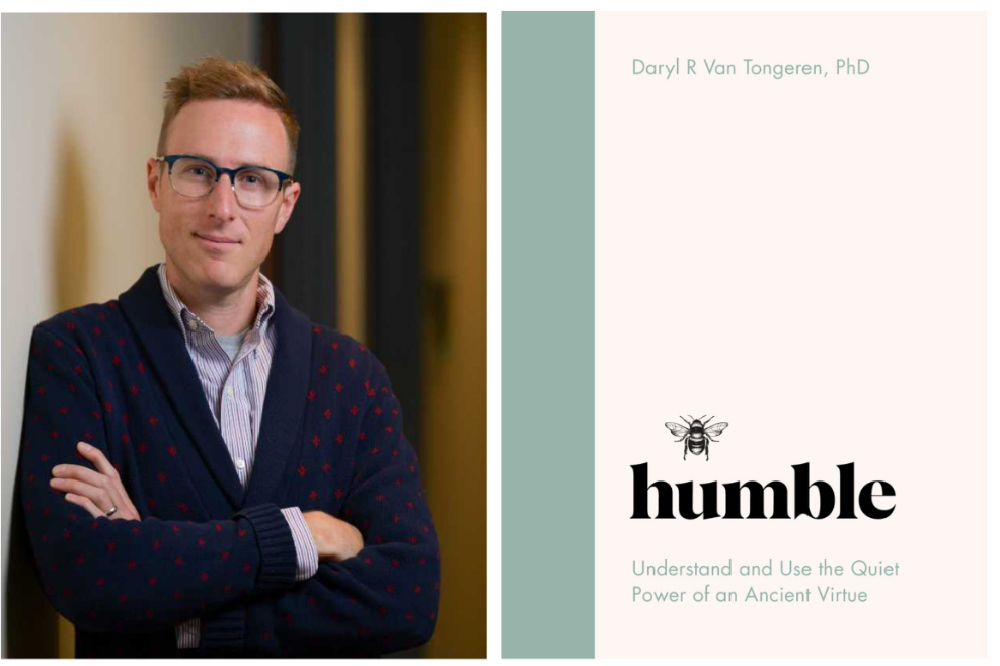What is humility? According to researcher and college professor, Dr. Daryl Van Tongeren, humility is about knowing yourself, checking yourself, and going beyond yourself. It’s an honest awareness of your strengths and limitations, the ability to reign in your ego, and the tendency to think about other people’s needs. And here are his Top 7 Reasons to be Humble:

Daryl R. Van Tongeren, Humble
1. It improves your relationships. A lot of scientific research has found that humility improves your relationships. People want to be friends with humble people, are more attracted to humble dating partners, and are more committed to and satisfied in relationships with humble people. And when things go wrong, we’re more likely to forgive humble people and repair the relationship. Who wouldn’t want to be in a relationship like that?
2. It’s empowering. Humility means shifting your sense of self-worth away from the approval and validation of others. We start living humbly when we ignore cultural mandates for wealth, beauty, or success, and instead, we start living our according to our values, knowing that we’re already loved, already worthy, and already enough. It frees us from the traps of a narcissistic world.
3. It may help heal our communities. We need humility now more than ever. Our communities are divided over politics, religion, and issues about identity and ideology. We’re taking at each other instead of to each other. We’re unwilling to listen, and we exclude or criticize people who disagree with us. Humility helps us truly listen to and engage in authentic relationships with people who are different from us. It encourages true healing and genuine relationships. And it’s desperately needed.
4. It’s necessary to grow and learn new things. If we ever want to grow or change, we need to know where our limitations are and what we can do to improve. It’s important to seek out and accept feedback—even when it is hard to hear—so we know where our “growth edges” are. And it’s also valuable to admit when we don’t know something, and to embrace the unknown with curiosity and a willingness to learn. Any new lasting personal change or major innovation or advancement began with humility.
5. It makes you more effective at your job. Humble people make better leaders. They’re willing to listen, more inclusive when making decisions and forming teams, and willing to admit when they don’t know. Working for a humble leader improves employee satisfaction and increases productivity. Practicing humility helps make highly demanding jobs smoother and less conflictual. Humility can transform our workplaces.
6. It’s better for your health. Honestly seeing the world as it is and accepting reality rather than distorting or avoiding it makes us healthier people. Humble people are less defensive and more accepting of the good and bad they encounter in the world, and they work had to overcome their biases, so they can engage with the world honestly. That gives us a deep and lasting peace of mind and a strong sense of psychological health.
7. It helps make life meaningful. Centering our lives around humility helps make life meaningful. When we’re in healthy relationships, can honestly accept reality, are freed from the narcissistic trappings of the culture around us, secure in our inherent worth and value, and living according to our values, life feels more meaningful. Humility helps us live a life we want to live, which is oriented toward making the world around us a better place.
Dr. Daryl Van Tongeren is author of Humble: Understand and Use the Quiet Power of an Ancient Virtue, published in July by Welbeck.


